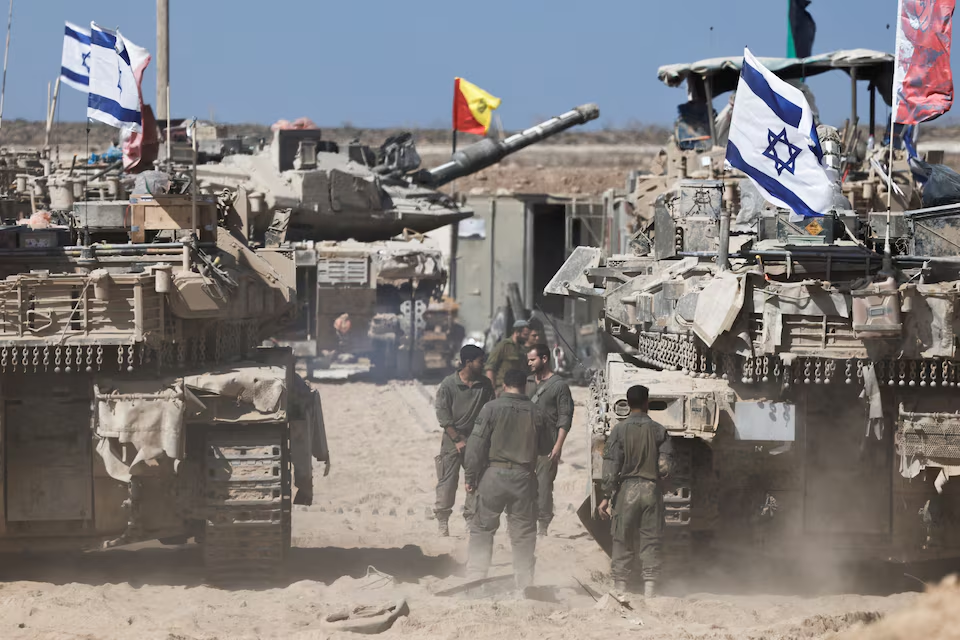News
Israeli Strikes on Gaza Undermine Fragile Ceasefire Efforts

The Israeli military said on Sunday that it carried out airstrikes and artillery fire on targets in southern Gaza, further dimming hopes that a U.S.-brokered ceasefire might bring lasting peace, as Israel accused the Palestinian militant group Hamas of renewed attacks.
The strikes marked the most serious test yet of the fragile ceasefire that took effect on October 11.
In a statement, the Israel Defense Forces (IDF) said the attacks targeted militants in the Rafah area who had opened fire on Israeli soldiers. The military added that tunnels and military structures were destroyed in the operation.
Prime Minister Benjamin Netanyahu said Israel would respond “forcefully” to Hamas assaults on its troops.
In contrast, Hamas’s armed wing said it remained committed to the ceasefire agreement across Gaza, claiming it had no knowledge of the Rafah clashes and had not been in contact with groups operating there since March.
“We reaffirm our full commitment to all agreements, particularly the ceasefire across every part of the Gaza Strip,” the Al-Qassam Brigades said in a statement.
Palestinian witnesses reported explosions and gunfire in Rafah, tank shelling near the southern city of Abasan close to Khan Younis, and airstrikes in the central towns of Zawaida and Deir al-Balah. Doctors at Al-Aqsa Hospital said at least five people were killed in those attacks. Residents of Khan Younis said they heard fresh airstrikes in Rafah on Sunday afternoon.
The Gaza Health Ministry reported that at least eight people had been killed by Israeli fire in the past 24 hours. Earlier, an Israeli military official said Hamas had launched several attacks inside Gaza, including a rocket-propelled grenade strike and sniper fire on Israeli soldiers.
“Both incidents occurred within Israeli-controlled territory,” the official said, calling them “a major breach of the ceasefire.”
Defense Minister Israel Katz announced that the “yellow line,” marking the limit of Israeli troop withdrawal under the ceasefire, would be physically demarcated, and any violation or attempt to cross it would be met with live fire.
Hamas senior official Izzat al-Risheq said the group remained committed to the truce, accusing Israel of “repeated and deliberate violations.”
According to Gaza’s government media office, Israel has carried out 47 ceasefire violations since the agreement took effect, killing 38 people and injuring 143. The office said these included “direct shootings at civilians, deliberate shelling, targeted operations, and multiple arrests.”
Rafah Crossing to Remain Closed
Both Israel and Hamas have accused each other of breaking the truce. Israel has announced that the Rafah border crossing between Gaza and Egypt will remain closed until further notice.
Rafah has been largely shut since May 2024. Under the ceasefire deal, aid deliveries to Gaza were to increase, as millions of people remain affected by famine conditions, according to the IPC Global Hunger Monitor’s August report. In previous truces, Rafah served as a key entry point for humanitarian supplies into the enclave.
Meanwhile, tensions continue over the return of deceased hostages. Israel has demanded that Hamas hand over the remains of all 28 captives still held in Gaza. Hamas has so far returned 20 living hostages and 12 bodies, saying it has no interest in keeping the remaining corpses and that retrieving them from the rubble requires time and specialized equipment.
Major challenges also remain in the broader U.S.-led plan to end the conflict — including disarming Hamas, determining Gaza’s future governance, forming an international stabilization force, and progressing toward the creation of a Palestinian state.
The U.S. State Department did not immediately respond to requests for comment.
Concerns over renewed fighting and the ceasefire’s collapse weighed on Israel’s financial markets Sunday, with Tel Aviv’s main stock index falling nearly 2%.
